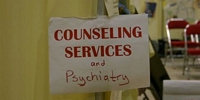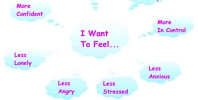|
|
 Acne (1,500) Acne (1,500)
 Addictions (1,500) Addictions (1,500)
 Advice (1,500) Advice (1,500)
 Allergies (1,092) Allergies (1,092)
 Alternative Medicine (1,500) Alternative Medicine (1,500)
 Anti Aging (1,500) Anti Aging (1,500)
 Breakup (1,500) Breakup (1,500)
 Cancer (1,499) Cancer (1,499)
 Dental Care (1,500) Dental Care (1,500)
 Disabilities (1,500) Disabilities (1,500)
 Divorce (1,500) Divorce (1,500)
 Elderly Care (1,498) Elderly Care (1,498)
 Goal Setting (1,500) Goal Setting (1,500)
 Hair Loss (1,500) Hair Loss (1,500)
 Health and Safety (1,497) Health and Safety (1,497)
 Hearing (1,500) Hearing (1,500)
 Law of Attraction (1,499) Law of Attraction (1,499)
 Marriage (1,500) Marriage (1,500)
 Medicine (1,497) Medicine (1,497)
 Meditation (1,499) Meditation (1,499)
 Men's Health (1,500) Men's Health (1,500)
 Mental Health (1,500) Mental Health (1,500)
 Motivational (1,500) Motivational (1,500)
 Nutrition (1,495) Nutrition (1,495)
 Personal Injury (1,499) Personal Injury (1,499)
 Plastic Surgeries (1,500) Plastic Surgeries (1,500)
 Pregnancy (1,496) Pregnancy (1,496)
 Psychology (1,500) Psychology (1,500)
 Public Speaking (1,500) Public Speaking (1,500)
 Quit Smoking (1,500) Quit Smoking (1,500)
 Religion (1,499) Religion (1,499)
 Self Help (1,500) Self Help (1,500)
 Skin Care (1,500) Skin Care (1,500)
 Sleep (1,500) Sleep (1,500)
 Stress Management (1,500) Stress Management (1,500)
 Teenagers (1,492) Teenagers (1,492)
 Time Management (1,500) Time Management (1,500)
 Weddings (1,500) Weddings (1,500)
 Wellness (1,500) Wellness (1,500)
 Women's Health (1,500) Women's Health (1,500)
 Women's Issues (1,500) Women's Issues (1,500)
|
One of the most dangerous activities you can do in your home is to clean your toilet bowl! Over 10,000 people, many of them children, were poisoned in 2005. The chemical culprits most responsible are the chlorine and hydrochloric acid in most toilet bowl cleaners found on store shelves. These products are even harmful to breathe and can cause serious discomfort and even asthma in you and your children and death to your dog. The toilet bowl cleaner you use is just one of the many poisons that you use to keep your home "clean": - Chlorine bleach in your washing machine to make your family's clothes bright
- Window cleaners that contain ammonia
- Air fresheners that contain volatile organic compounds (VOC) that have a pleasant odor but give off formaldehyde and other regulated toxic air pollutants in your home's air
- Automatic dish washing powders can also release chlorine into the air
We all want a clean home for our family's health and comfort and a welcoming atmosphere for visitors, so must we entirely give up these cleaning aids? No, there are better choices in your store and with the products you currently use, if you make some adjustments to your cleaning regimen: - If you continue to use the products you have in your home, make your children, pets and anyone else not involved in cleaning go outside your home
- Wear a breathing mask, eye protection, cover your skin and wear heavy gloves as you handle and use the cleaners
- Dispose of all of the cleaners properly when they are depleted. These are toxic chemicals and your city or town likely has toxic chemical disposal sites that will accept them.
You can make you own non-toxic cleaners from commonly available ingredients, even fruit and vegetables! These are effective and all natural, but, while probably the most "green" solution, it is time consuming to learn how to combine the ingredients before cleaning your home; when was the last time you baked a cake from scratch? It has become easier, lately, to buy less toxic and even non-toxic household cleaners without disrupting our shopping routines. The same companies that have for so many years been happily selling poisonous cleaners are now offering "green" products, as if they truly had a conversion to the movement! But, they still sell the poisonous products and provide no information on how "green" their products truly are! You can continue to support these companies, or you can look at alternative companies that have never produced toxic cleaners and who are committed to a safe, clean and healthy home environment for you and your family. Yes, there are some and they are becoming more attractive as we all spend more time indoors. So, do you really want to continue to pollute your home with the toxic industrial chemicals that are poisoning your family, or do you want to learn how to have a clean home without the danger? Follow the link below for resources and references about how to minimize the dangers of toxic cleaners in your home and learn about your alternatives to a safer, green and clean home.
|
|
|



